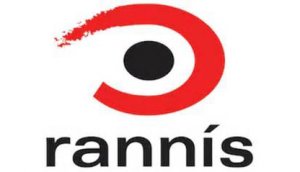Rannís Project Grants to Icelandic Research Institutions
The Icelandic Research Fund (IRF) is an open competitive fund which provides research grants according to the general priorities of the Icelandic Science and Technology Policy Council and based on peer review of proposals.
The role of the IRF is to enhance scientific research (basic and applied) and research education in Iceland. For this purpose the IRF awards funding to research students and research projects led by individuals, research teams, universities, research institutes, and companies (cf. Act 3/2003 with later amendments).
Types of grants
The scope of the research fund is about 2.5 billion ISK a year, this amount is divided between new grants and commitments due to older grants.
There are four grant types: project grants, grants of excellence, postdoctoral fellowship grants and doctoral student grants, and these grants are awarded for up to 36 months.
International research collaboration and industrial partners are welcomed in applications. Grants can, however, only be paid to bank accounts of Icelandic institutions or companies.
Funds from the IRF may be used for co-funding of international research projects with a similar focus.
Applications must meet all stated eligibility criteria in order to be reviewed. If it becomes clear during the application process that one or more of the eligibility criteria have not been met, the application is declared ineligible and is withdrawn from any further examination.
Principal investigators must have completed their graduate studies at an accredited university. This does not apply to applicants for doctoral student grants.
Projects that are the subject of grant applications of different types may overlap. Thus, it is possible, for example, to submit separate applications for a grant of excellence and a project grant for projects with similar or overlapping aims, provided that there is a match between the scope of the project and the project budget in both applications. The same applies for other types of grants. The IRF reserves the right to fund only one project with overlapping aims.
Project grants
Project grants are intended for research projects.
It is considered a strength if a project grant application includes work by graduate students and/or post-doctoral fellows.
The maximum grant amount for a project grant is ISK 45 million for a 36-month project, ISK 30 million for a 24-month project, and ISK 15 million for a 12-month project.
The grant from the IRF may fund up to 85% of the total cost of the project.
Approved expenses
SALARIES
Grants can be used to fund salaries of researchers, graduate students and technical staff. Participating researchers may be unidentified at time of application, but work assignments for all persons involved in the project must be detailed in the budget if the application includes funding for their salaries. The IRF does not fund payments of overtime worked in research or payment of salaries to parties who are also receiving full pay for other work (including pensioners).
OPERATIONAL EXPENSES
Applicants can apply for funding for expenses due to necessary resources for the project, excluding items concerning overhead expenses and facilities, for example general office equipment such as computers. All operational expenses and expenses due to purchase of equipment shall be itemized in the correct field in the table. Note that all une xplained cost will be rejected.
Equipment for up to ISK 2 million can be included in each application as operational expenses. Price quotes from sellers in connection with equipment purchases shall accompany the application.
TRAVEL EXPENSES
This item consists of the total sum of travel necessary for the progress of the project. All travel expenses must be justified and their relation to the project goal(s) clearly explained.
CONTRACTED SERVICES
This item consists of work not carried out by the participants in the project, which is necessary for the project’s progress. All expenses due to contracted services shall be itemized in the correct field in the electronic application form. Tenders for contracted services shall accompany the application.
It is not possible to apply for financing of overhead expenses and facilities in relation to contracted services.
PUBLICATION EXPENSES
Publication costs of up to ISK 500,000 can be applied for under this item. It is not possible to apply for financing of overhead expenses and facilities in relation to publication expenses.
OVERHEAD EXPENSES AND FACILITIES
Applicants can apply for funding for financing overhead and facilities for up to 25% on top of total cost of the project, excluding contracted services. Overhead expenses include costs related to, for example, office and research facilities, rent, utilities, support and auxiliary functions, purchases of literature, and purchases and maintenance of IT equipment and infrastructure such as computers. This amount is added to the grant amount applied for, and therefore the total amount can be higher than what is indicated as the maximum grant amount (see table 1 and section 2.1).
What to include in the application
An application must include the following sections:
- A Project Description in the format of the 2019 template, available in the online application system.
- Applicant CV
The following should be included, where appropriate:
- A letter of intent from other participants (if applicable)
- Host declaration and doctoral diploma for postdoctoral fellowship proposals
- Confirmation of acceptance into a doctoral program for doctoral proposals
- Quotes for equipment purchases and/or contracted services (if applicable)
The review of the application will solely be based on the information supplied in the application and relevant accompanying appendices. No documents are accepted after the closing of the application deadline. Applications with incorrect templates for the Project Description (Attachment A) will be rejected from the review process. Incomplete applications will be rejected at any time in the review process.
All applications must be submitted through the electronic application system of Rannís.
Timeline
The call for grant year 2020 will open in May 2019 with deadline 20 June 2019.
When the call has opened, applicants without Icelandic ID number can contact Rannís by sending an email to: rannsoknasjodur@rannis.is
